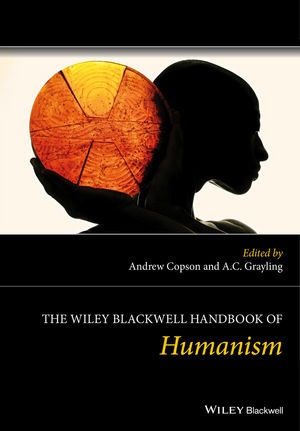Ulteriori informazioni
Presents an edited collection of essays that explore the nature of Humanism as an approach to life, and a philosophical analysis of the key humanist propositions from naturalism and science to morality and meaning.
Sommario
Notes on Contributors vii
Foreword xi
1 What Is Humanism? 1
Andrew Copson
Part I Essentials of Humanism 35
2 Naturalism 37
Brendan Larvor
3 Science, Reason, and Scepticism 55
Stephen Law
4 Death as Annihilation 72
Peter Cave
5 The Good and Worthwhile Life 87
A. C. Grayling
Part II Diverse Manifestations 95
6 The Materialists of Classical India 97
Jeaneane Fowler
7 Humanism in the Classical World 119
Charles Freeman
8 Ancient China 133
Merv Fowler
9 Humanistic Thought in the Islamic World of the Middle Ages 153
Abdelilah Ljamai
Part III Implications 171
10 Counselling and the Humanist Worldview 173
Carmen Schuhmann
11 Making a Home in This World: Humanism and Architecture 194
Ken Worpole
12 Humanist Ceremonies: The Case of Non-Religious Funerals in England 216
Matthew Engelke
13 Humanism and Education 234
John White
14 Humanism and the Political Order 255
Alan Haworth
15 Humanism in Recent English Fiction 280
Peter Faulkner
Part IV Debates 303
16 Feminism and Humanism 305
Pauline Johnson
17 Life Without Meaning? 325
Richard Norman
18 Spirituality 347
Jeaneane Fowler
19 Is Humanism Too Optimistic? An Analysis of Religion as Religion 374
Paul Cliteur
20 Humanism, Moral Relativism, and Ethical Objectivity 403
John R. Shook
21 The Future of Humanism 426
Peter Derkx
Index 440
Info autore
Andrew Copson is Chief Executive of the British Humanist Association, Vice President of the International Humanist and Ethical Union, and a former director of the European Humanist Federation.
A. C. Grayling is Professor of Philosophy and Master of the New College of the Humanities, London, and a Supernumerary Fellow of St Anne's College Oxford.
Riassunto
The Wiley Blackwell Handbook of Humanism presents an edited collection of essays that explore the nature of Humanism as an approach to life, and a philosophical analysis of the key humanist propositions from naturalism and science to morality and meaning.
Relazione
"This volume brings together key figures in the study of humanism, and it offers tremendous insights and important perspective. It is must reading for anyone interested in understanding and contextualizing the significance and impact of humanist thought and praxis. I highly recommend it."--Professor Anthony Pinn, Agnes Cullen Arnold Professor of Humanities, Rice University, Director of Research at the Institute for Humanist Studies, and editor of 'Humanism: what is it and why does it matter?' and 'Everyday Humanism'
"As the president of a humanist association I welcome this volume, and as a working academic I'm excited to see the fertile territory of humanism marked out for greater study as a philosophy in its own right."--Professor Jim Al-Khalili, President of the British Humanist Association
"The Wiley Blackwell Handbook of Humanism is the new authoritative guide to the subject. A rapidly-growing worldwide alternative to religion, Humanism has emerged as the critical moral movement of our times. In this volume, for expert and novice alike, the latest thinking and research on the subject are opened up from historical, philosophical and moral standpoints. Chapters are organised around major themes, ranging from essential philosophical positions within Humanism, through Humanism's cultural origins and manifestations, and onto the implications of Humanism as an applied moral position in civil life, architecture, funerals and literature. The book finishes with six chapters on the role of humanism in key contested debates of our times - ranging from feminism to spirituality. With specialist contributors providing detailed accounts in their fields, each chapter is written with a verve and insight that bowls the reader along. This is the essential book to make Humanism accessible to the modern reader."--Professor Callum Brown FRSE, Professor of Late Modern European History and Convenor of the Humanist Studies Hub, University of Glasgow
"Humanism is so often overlooked, but I believe it is both the most rational and positive philosophy for life. And it's not a new thing - the history of humanist thought is deep and inspiring. This volume makes it more accessible both to scholars and the general reader."--Professor Alice Roberts, University of Birmingham
"This is an inspiring book that covers all the important issues of 21st century Humanism. The book couples the academic insights of important scholars to their deep commitment to the Humanist cause. I recommend this book to all interested in learning about Humanism in an accessible, academic style and for use on my university as a thorough and fast introduction to current Humanism."--Prof. Dr Gerty Lensvelt-Mulders, Vice-chancellor of the Humanist University of the Netherlands, Utrecht

